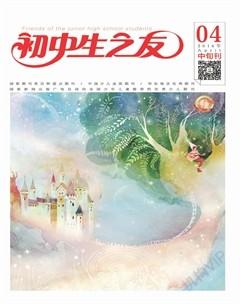为什么被耍的人叫April Fish?
思年
4月1日是“愚人节”,这是众所周知的事情。在这一天,作怪是天经地义的事情。许多人铆足了劲,一心想把愚人节的无厘头发挥到极致。之前,任何人都可以炮制骇人听闻的消息,而且不负丝毫的道德和法律责任,政府和司法部门也不会追究。相反,谁编造的谎言最离奇、最能骗取人们相信,谁还会荣膺桂冠。这种做法给社会带来不少混乱,因而引起人们的不满。现在,人们在节日期间的愚弄欺骗已不再像过去那样离谱,而是以轻松欢乐为目的。
有整人的人,自然也有“被整”的受害者啦。在英语中,愚人节里被耍的人叫做April Fish。这种说法是怎么来的呢?
首先,我们来看一下愚人节的起源:
In 1582 France became the first country to switch from the Julian to the Gregorian calendar. This meant that the beginning of the year was moved from the end of March to January 1. If someone failed to keep up with the change and continued to celebrate the New Year between March 25th and April 1st, various jokes would be played on him. This story might explain why April 1st specifically became the date of the modern holiday.
这个节日起源于法国。16世纪的时候,多数基督教国家都使用儒略历,把3月25日到4月1日作为新年节日来庆祝。按习俗,4月1日这天人们要互赠礼物致贺。1564年,法国首先采用新改革的纪年法——格里历(即目前通用的阳历),以1月1日为一年之始。但是,有些人没能听说或者听说了但不相信新年改天了。他们还是按照老习惯在4月1日这天过年,这个新年本身已经够“虚假”了。后来,有些爱恶作剧的人,干脆把礼物也变成虚假的。说是送一盒点心,里边可能是块石头。声言前去拜访,却让主人干等半天。受骗的人不甘心,也照方抓药,进行报复,久而久之,就形成了愚人节。
为什么被耍的人和“fish”有关呢?
The French eventually adopted April 1 as a new celebration of these very events, and called it Poisson dAvril meaning “April Fish”, a term that is used to this day. So why the term “April Fish”? Because the New Year once coincided with the sun leaving the zodiacal sign of Pisces.
在法语中,“愚人节”的说法是“Poisson dAvril”,翻译成英语就是“April Fish”。
那为什么会是“April Fish”呢?因为儒略历的新年曾经和太阳离开双鱼宫的日子正好吻合,所以,当时更新了新的纪年法却还在4月1日过新年的人,就被称作“April Fish”啦。如今,法国人把愚人节叫做“上钩的鱼”。法国孩子会在朋友的背上贴一条鱼,以此来戏弄别人。当那个受骗上当的小朋友发现以后,开玩笑的人就大叫“上钩的鱼儿”!

